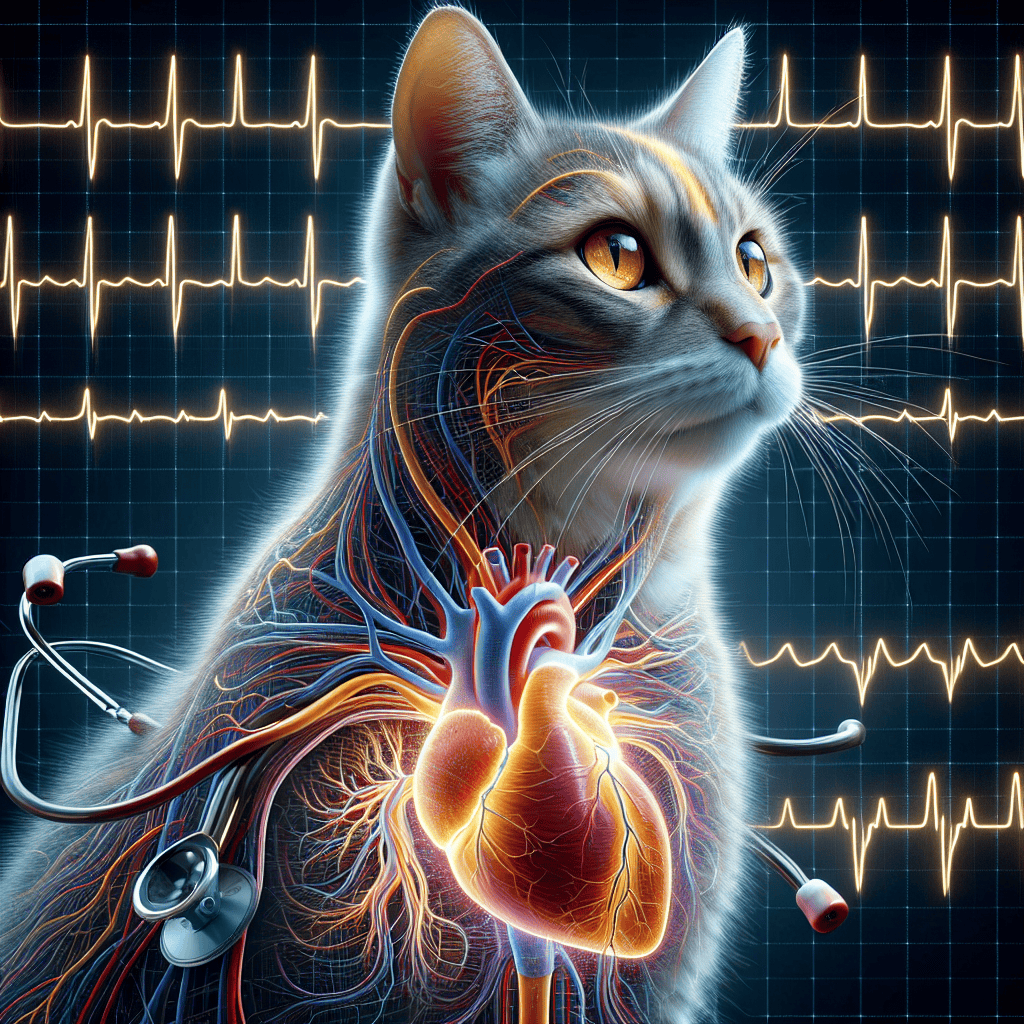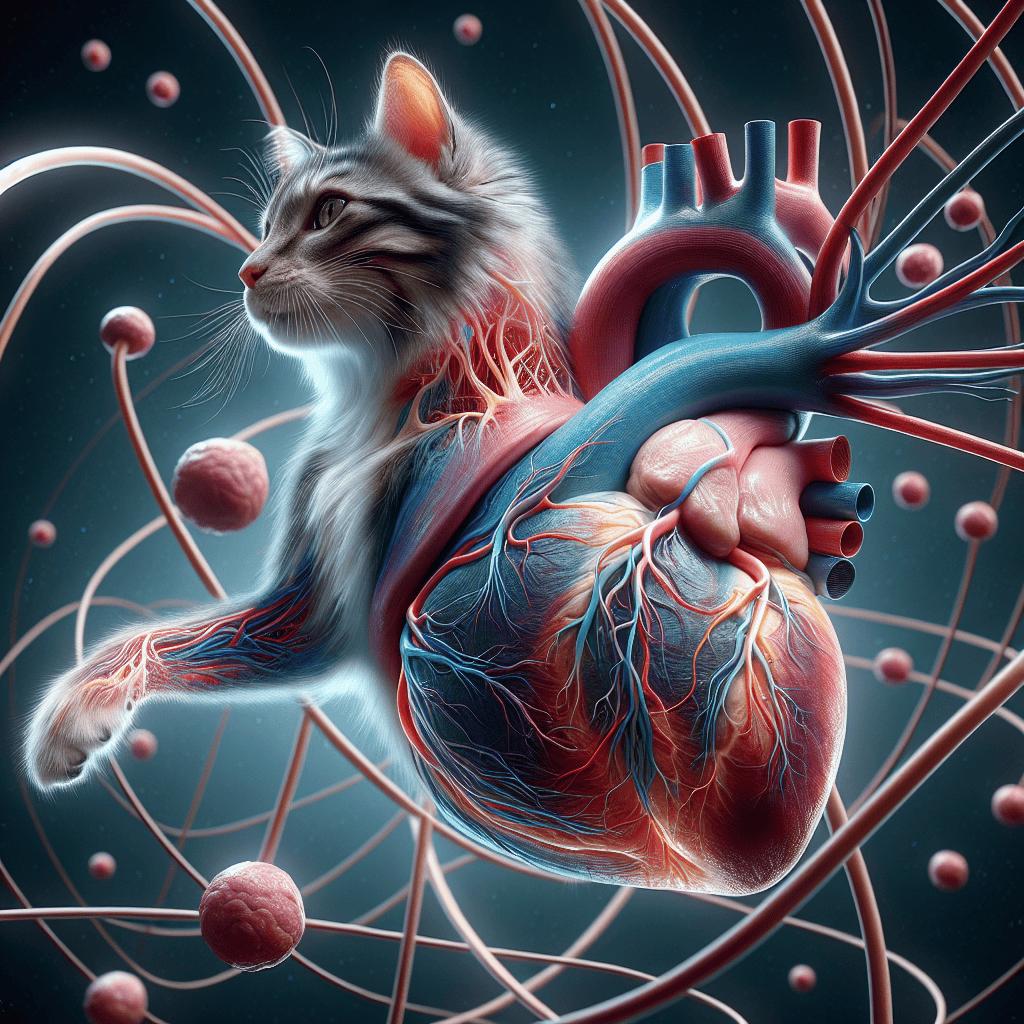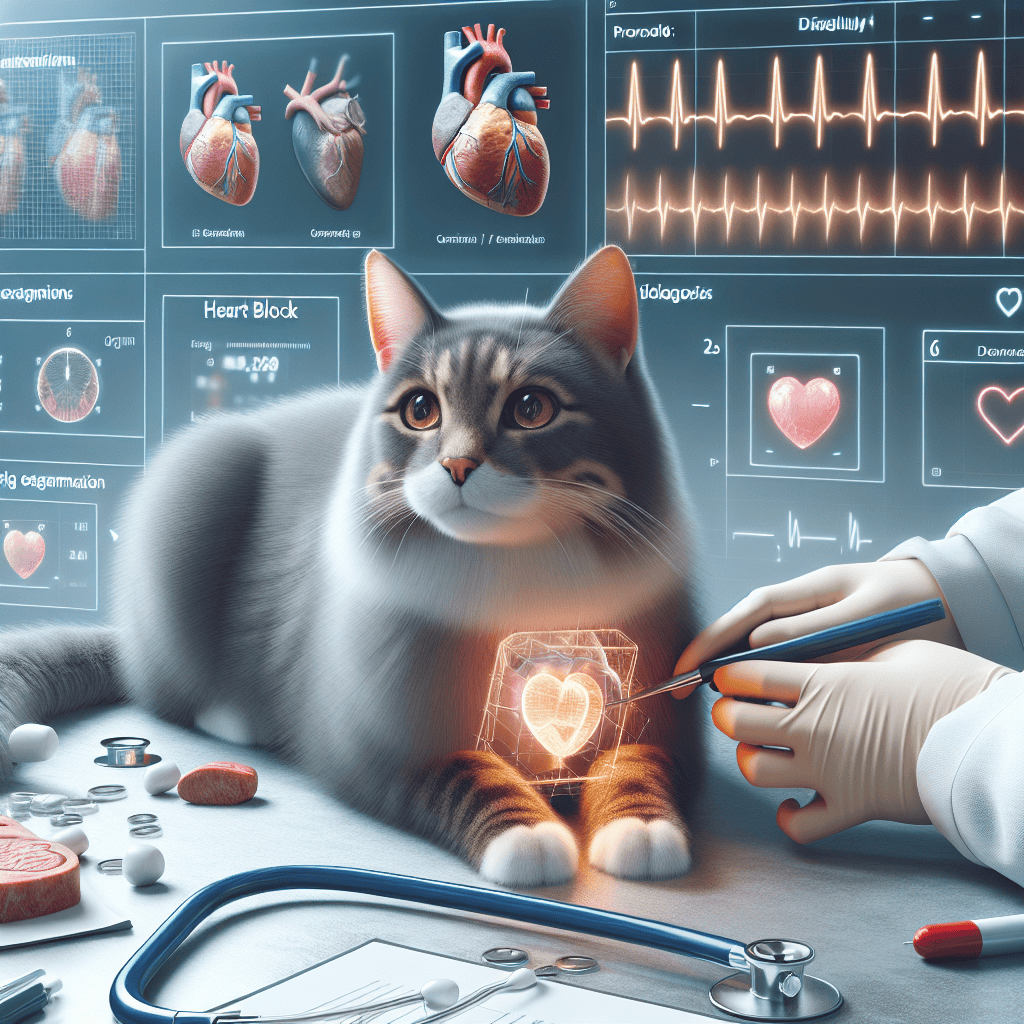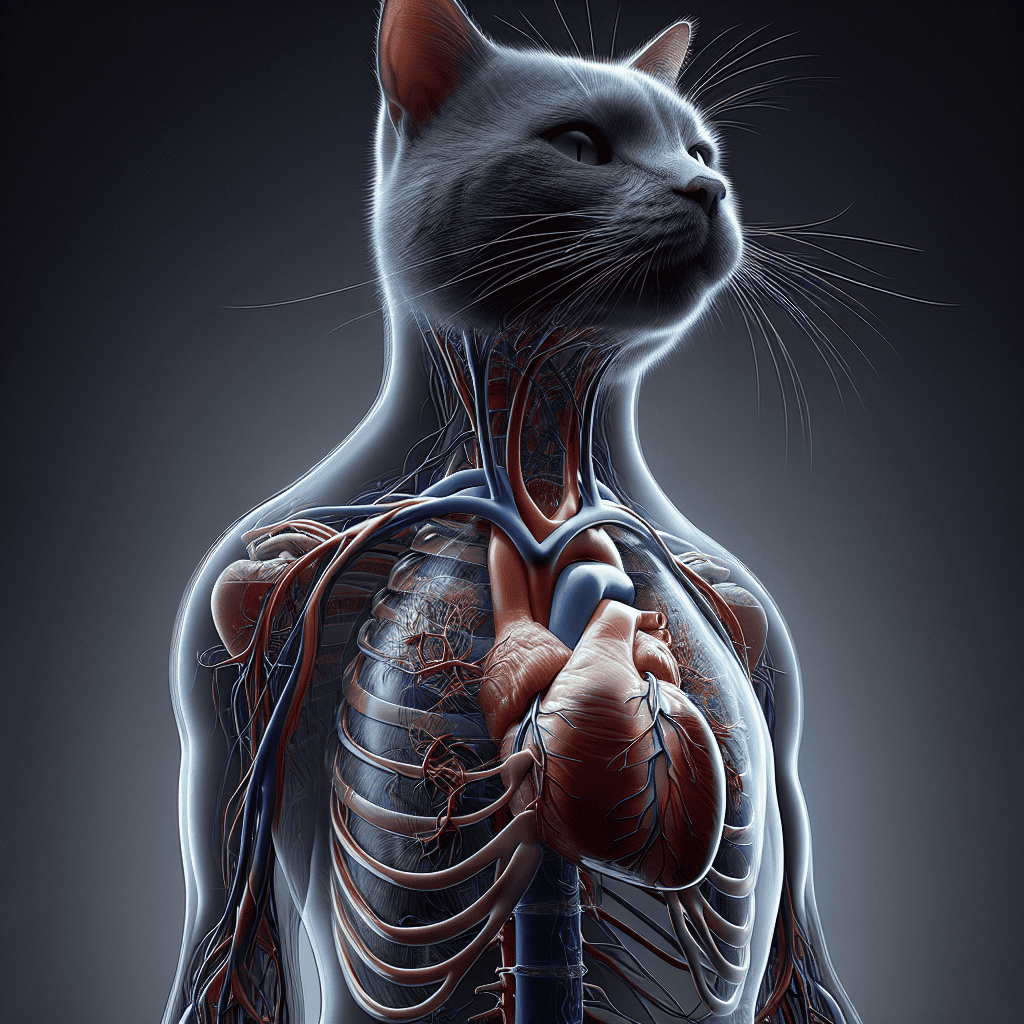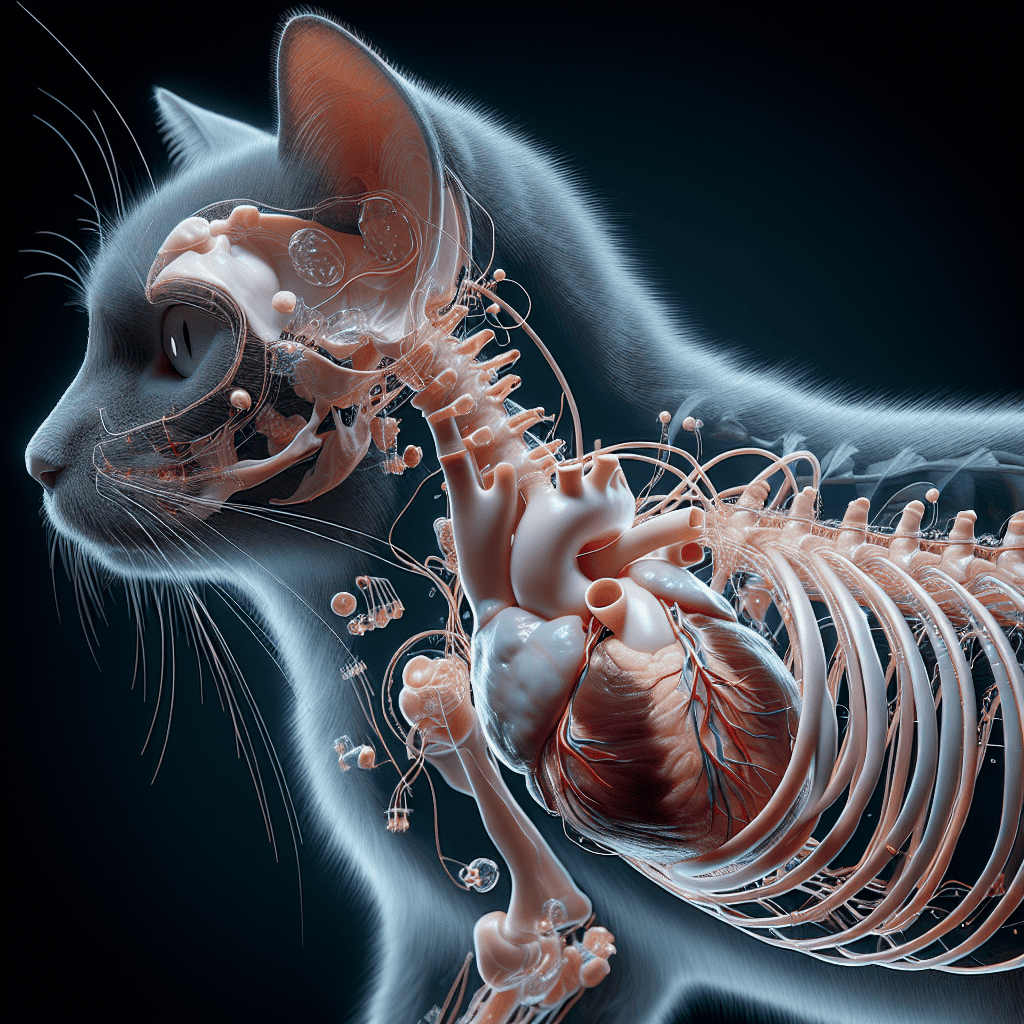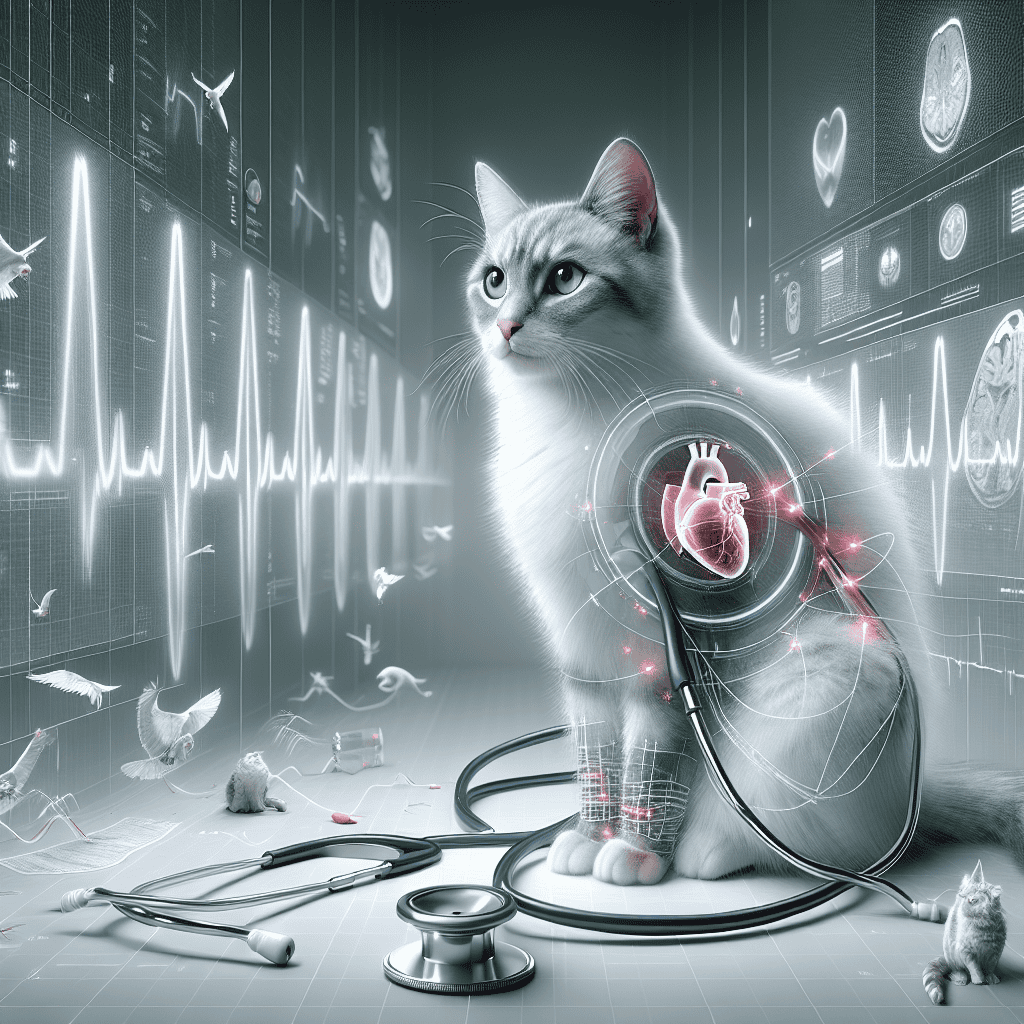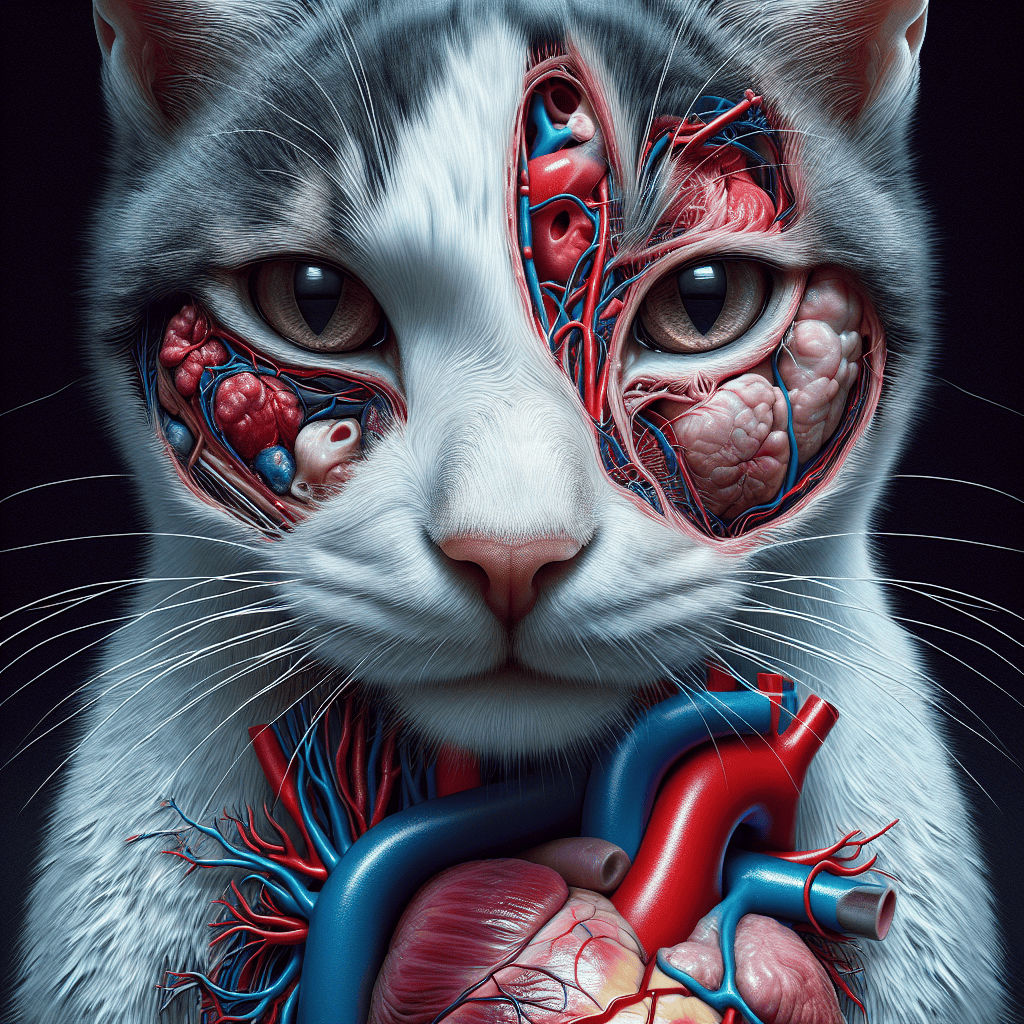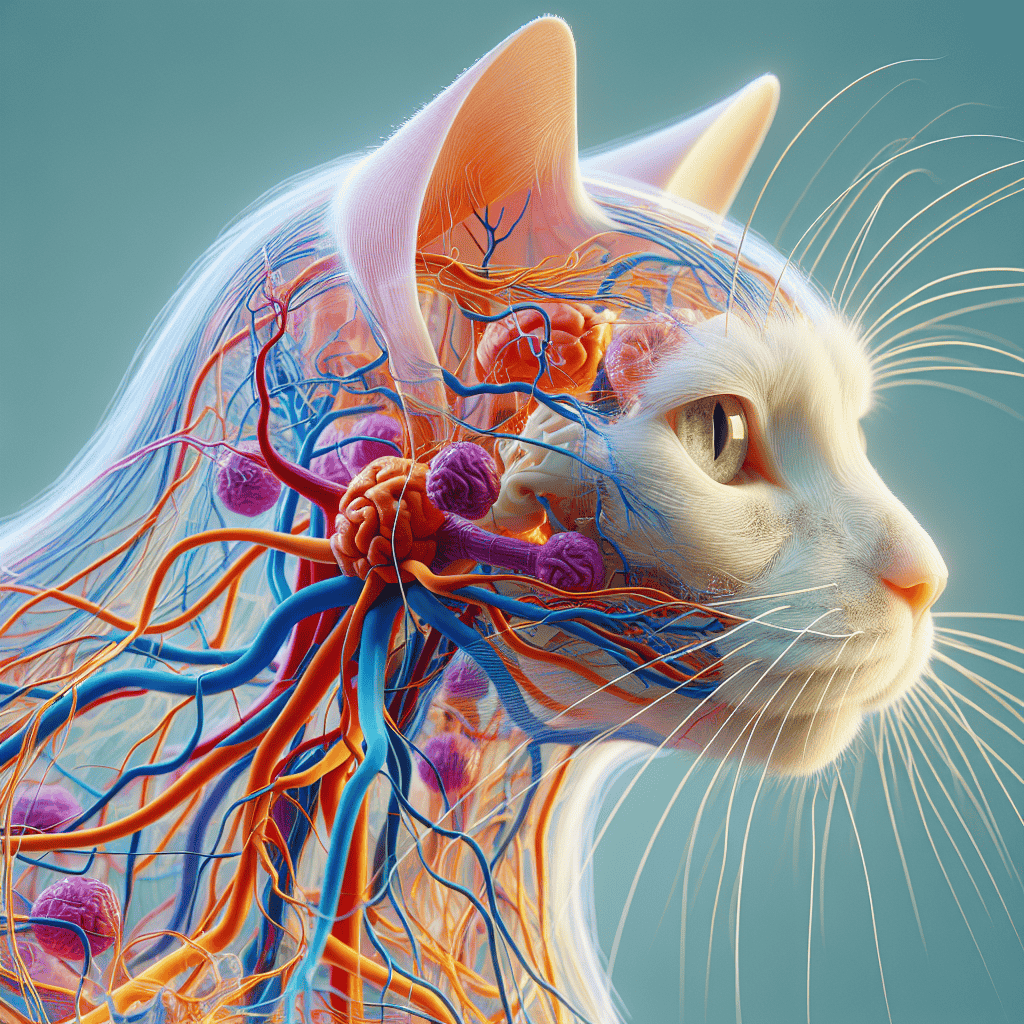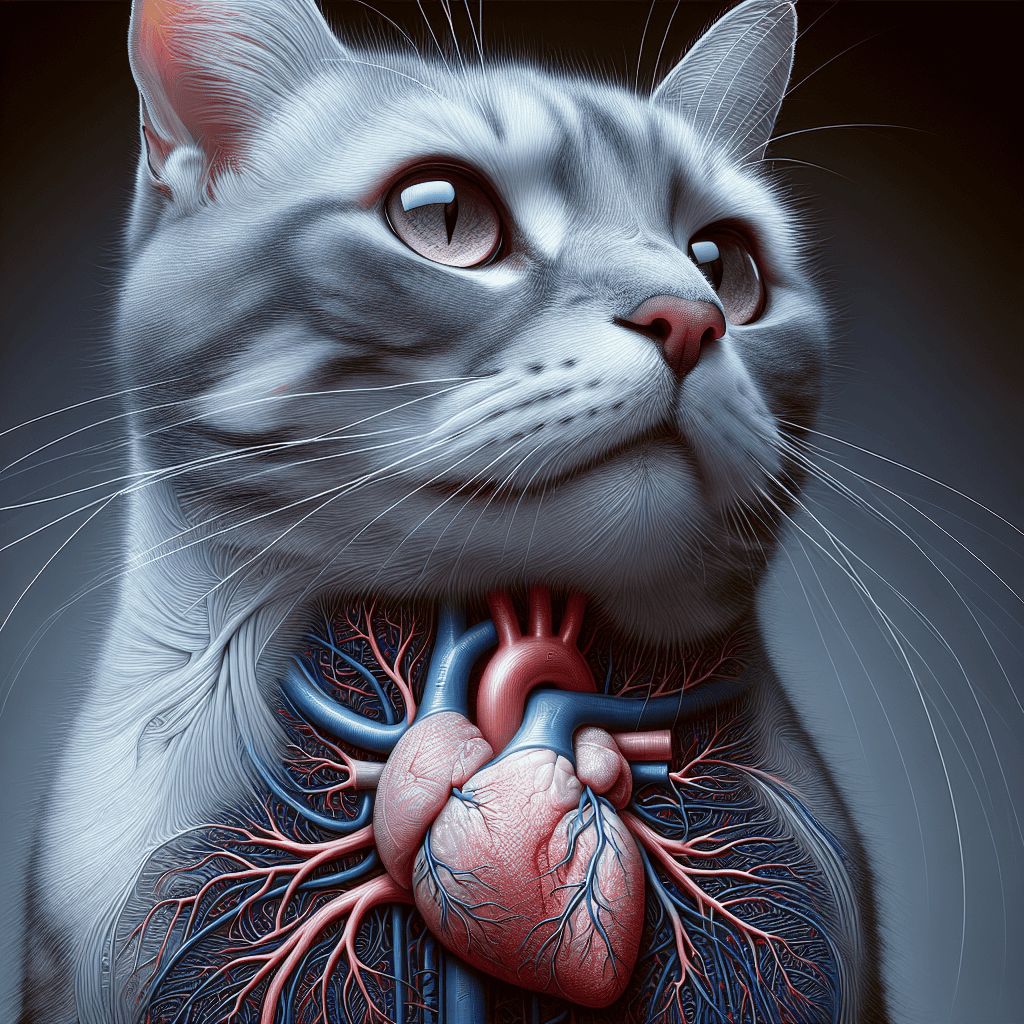Understanding Heart Arrhythmias in Cats
When it comes to the health of our feline friends, it’s essential to be aware of potential heart irregularities that can affect them. Heart arrhythmias in cats, also known as feline cardiac arrhythmia, refer to irregularities in either the rate or rhythm of the heartbeat. These irregularities can manifest as the heart beating too fast, too slow, or inconsistently. It’s important to be familiar with the overview of cardiac arrhythmias and the common symptoms to watch for.
Overview of Cardiac Arrhythmias
Heart arrhythmias can occur in any cat, regardless of age or breed. However, certain breeds such as Ragdolls, Himalayans, and Siamese may be more predisposed to structural heart disease and arrhythmias. Additionally, male cats and older cats tend to be more prone to abnormal heart rhythms (PetMD).
Arrhythmias can be caused by various underlying factors, including hypertrophic cardiomyopathy (HCM), dilated cardiomyopathy (DCM), infection, trauma, high blood pressure, low red blood cell count, alterations in the nervous system, certain electrolyte changes, hyperthyroidism, kidney disease, cancer, and certain toxins (PetMD). Identifying the specific cause of the arrhythmia is crucial for determining the most appropriate treatment plan.
Common Symptoms to Watch For
It’s important for cat owners to be vigilant and watch for any signs of irregular heart rhythms in their feline companions. Symptoms may vary depending on the severity and type of arrhythmia, but some common signs to look out for include:
- Syncope (fainting): Cats with severe cardiac arrhythmias may experience fainting spells due to inadequate blood flow to the brain.
- Increased respiratory rate: Rapid or labored breathing may be a sign of an underlying heart condition.
- Open-mouth breathing: Cats may exhibit open-mouth breathing, especially during rest or minimal activity.
- Abdominal distension: Swelling or bloating of the abdomen can occur as a result of fluid retention caused by poor heart function.
If you observe any of these symptoms in your cat, it’s crucial to seek immediate veterinary attention. Prompt diagnosis and treatment are essential for managing heart irregularities and maintaining your cat’s overall health.
Understanding the basics of heart arrhythmias, along with the common symptoms to watch for, can help cat owners identify potential issues and seek appropriate veterinary care. In the following sections, we will explore the causes, diagnosis, treatment options, and proactive care for cat heart health, providing you with the knowledge and tools to safeguard your feline companion’s heart.
Causes of Irregular Heart Rhythms in Cats
Irregular heart rhythms, also known as cardiac arrhythmias, in cats can have various underlying causes. Identifying these causes is crucial in order to effectively manage and treat the condition. The two main factors contributing to irregular heart rhythms in cats are underlying heart conditions and other contributing factors.
Underlying Heart Conditions
Most arrhythmias in cats are a result of underlying structural heart disease. The common heart conditions associated with irregular heart rhythms include:
- Hypertrophic Cardiomyopathy (HCM): This is the most common heart disease affecting cats. It involves the thickening of the heart muscle, which can disrupt the electrical signals responsible for maintaining a regular heartbeat.
- Dilated Cardiomyopathy (DCM): DCM is characterized by the enlargement and weakening of the heart muscle. This can lead to abnormal electrical activity and irregular heart rhythms.
- Other Heart Diseases: Infections, trauma, high blood pressure, low red blood cell count, alterations in the nervous system, certain electrolyte changes, hyperthyroidism, kidney disease, cancer, and certain toxins can also contribute to irregular heart rhythms in cats (PetMD).
Other Contributing Factors
In addition to underlying heart conditions, there are other factors that can contribute to irregular heart rhythms in cats. These include:
- Electrolyte Imbalances: Abnormal levels of electrolytes, such as potassium or calcium, can disrupt the electrical signals in the heart and lead to arrhythmias.
- Kidney Disease: Cats with kidney disease may experience imbalances in fluid and electrolyte levels, which can affect heart function.
- Hyperthyroidism: An overactive thyroid gland can impact heart rate and rhythm.
- Stress and Nervousness: Cats may experience irregular heart rhythms due to stress, nervousness, or fear. Certain breeds, such as Persians, Maine Coon cats, and Himalayans, may be more prone to these irregularities (Wag Walking).
Regular veterinary check-ups are essential for cats to detect any signs of heart disease, including irregular heartbeats. Diagnostic tests such as echocardiography, electrocardiogram (ECG or EKG), blood tests, and blood pressure measurements can help identify the underlying causes of cardiac arrhythmias (Wag Walking). It is crucial to address these underlying causes to provide appropriate treatment and management for cats with irregular heart rhythms.
Diagnosing Irregular Heart Rhythms in Cats
When it comes to cat heart irregularities, timely and accurate diagnosis is crucial for effective treatment. Diagnosing irregular heart rhythms in cats typically involves a combination of veterinary examination and specialized diagnostic tests to assess the overall heart health.
Veterinary Examination and Evaluation
The initial step in diagnosing irregular heart rhythms in cats is a thorough veterinary examination. During this examination, the veterinarian will listen to the cat’s heartbeat using a stethoscope. They will pay close attention to any abnormalities, such as irregularities in rhythm or intensity. The veterinarian may also consider other factors, such as the presence of murmurs or abnormal lung sounds, which can provide additional insights into the cat’s cardiac health.
Diagnostic Tests for Heart Health
To further evaluate the cat’s heart health and identify the underlying causes of irregular heart rhythms, various diagnostic tests may be recommended. These tests may include:
-
Echocardiography: Also known as a heart ultrasound, echocardiography provides a detailed assessment of the heart’s structure and function. It allows veterinarians to visualize the heart chambers, valves, and blood flow patterns. This non-invasive test helps detect structural abnormalities and provides valuable information about the overall cardiac health.
-
Electrocardiogram (ECG or EKG): An electrocardiogram records the electrical activity of the heart. By placing electrodes on the cat’s skin, the ECG machine measures the electrical impulses generated by the heart. This test helps identify abnormal heart rhythms and provides information about the heart’s electrical conduction system.
-
Blood Tests: Blood tests can provide important insights into the cat’s overall health and help identify underlying conditions that may contribute to irregular heart rhythms. These tests may include a complete blood count (CBC), blood chemistry panel, and thyroid function tests. Elevated thyroid hormone levels (hyperthyroidism) or electrolyte imbalances can sometimes be associated with cardiac arrhythmias.
-
Blood Pressure Measurements: High blood pressure (hypertension) can potentially contribute to heart rhythm abnormalities. Measuring the cat’s blood pressure can help identify if hypertension is a contributing factor to the irregular heart rhythms.
In some cases, a veterinary cardiologist may be involved in the evaluation and diagnosis of irregular heart rhythms. They specialize in diagnosing and treating heart diseases in animals, providing an added level of expertise and specialized care.
By combining the findings from the veterinary examination and the results of diagnostic tests, veterinarians can accurately diagnose irregular heart rhythms in cats. This comprehensive approach helps guide appropriate treatment strategies and ensures the best possible care for your feline companion. Regular veterinary check-ups are essential for the early detection of heart disease, enabling prompt intervention and management.
Treatment Options for Irregular Heart Rhythms
When it comes to addressing irregular heart rhythms in cats, there are various treatment options available. The choice of treatment depends on the type and severity of the condition, as well as the underlying causes. In some cases, outpatient care and medication may be sufficient, while in more serious situations, surgical interventions and procedures may be necessary.
Outpatient Care and Medication
For cats with irregular heart rhythms, outpatient care and medication are often the first line of treatment. Outpatient care involves managing the cat’s condition through regular veterinary check-ups and monitoring. During these check-ups, the vet will assess the cat’s heart health and adjust the treatment plan accordingly.
Medication may be prescribed to help control the arrhythmia and manage associated symptoms. The specific type of medication will depend on the type of arrhythmia and the cat’s overall health. It’s important to administer the medication as directed by the veterinarian and to follow up regularly to monitor the cat’s response to treatment.
Surgical Interventions and Procedures
In more severe cases of irregular heart rhythms, surgical interventions and procedures may be recommended. These procedures are typically performed by a veterinary cardiologist and aim to restore normal heart rhythm and prevent further complications.
One common surgical procedure is the installation of a pacemaker. A pacemaker is a small device that helps regulate the cat’s heartbeat. It is implanted under the skin and connected to the heart through electrical leads. The pacemaker continuously monitors the heart’s electrical signals and delivers electrical impulses to maintain a regular rhythm.
In some cases, other implantable devices, such as an implantable cardioverter defibrillator (ICD), may be used. An ICD is similar to a pacemaker but also has the ability to deliver an electric shock if a life-threatening arrhythmia occurs.
It’s important to note that recovery after surgical procedures may take time, and arrhythmias may still occur during the healing process (Cleveland Clinic). Regular follow-up care and monitoring are essential to ensure the effectiveness of the treatment and the overall well-being of the cat.
Understanding the best treatment option for your cat’s irregular heart rhythms requires a thorough evaluation by a veterinarian. They will consider the cat’s specific condition, medical history, and individual needs to create a tailored treatment plan. By working closely with your veterinarian, you can ensure that your feline companion receives the most appropriate and effective treatment for their heart health.
Proactive Care for Cat Heart Health
Taking proactive steps to care for your cat’s heart health is essential in managing and preventing irregular heart rhythms. Regular veterinary check-ups and lifestyle considerations play a vital role in ensuring the well-being of your feline friend.
Regular Veterinary Check-ups
Regular veterinary check-ups are crucial in maintaining your cat’s heart health. Veterinarians can often identify heart disease before symptoms occur, making annual physical examinations and blood tests highly effective at screening pets for diseases that can affect their heart (Carolina Veterinary Specialists). During these check-ups, your veterinarian will assess your cat’s overall health, listen for any abnormal heart sounds, and may recommend additional tests, such as electrocardiography or echocardiography, to evaluate the heart’s function.
Regular check-ups also provide an opportunity for you to discuss any concerns or changes in your cat’s behavior that you may have noticed. Early detection and intervention are key in managing heart irregularities and ensuring the best possible outcomes for your cat.
Lifestyle and Diet Considerations
In addition to regular veterinary check-ups, maintaining a healthy lifestyle and diet is crucial for supporting your cat’s heart health. Here are some considerations to keep in mind:
-
Balanced Diet: Providing a nutritionally balanced diet that meets your cat’s specific needs is essential. Consult with your veterinarian to ensure that your cat’s diet includes appropriate levels of essential nutrients and is suitable for their overall health and any specific heart conditions they may have.
-
Weight Management: Obesity can strain the heart and contribute to heart problems. Maintaining a healthy weight through proper diet and regular exercise is important for reducing the risk of heart-related issues. Your veterinarian can provide guidance on healthy weight management strategies for your cat.
-
Exercise: Regular exercise helps keep your cat’s heart and body in good condition. Playtime and interactive toys can encourage physical activity and mental stimulation. However, it’s important to consider your cat’s individual needs and any limitations they may have due to their heart condition. Consult with your veterinarian for exercise recommendations tailored to your cat’s specific circumstances.
-
Stress Reduction: Minimizing stress in your cat’s environment can contribute to overall heart health. Providing a calm and enriched environment, ensuring access to safe spaces, and minimizing exposure to stressful situations can help reduce the risk of heart irregularities.
By prioritizing regular veterinary check-ups and implementing lifestyle and diet considerations, you can take proactive steps to safeguard your cat’s heart health. These measures, combined with proper medical management, can improve your cat’s quality of life and help manage any existing irregular heart rhythms. Remember, if you suspect irregular heart rhythms in your cat or notice any concerning symptoms, seek veterinary care promptly for a thorough evaluation and appropriate treatment (Wag Walking).
Managing Irregular Heart Rhythms in Cats
When it comes to managing cat heart irregularities, proactive care and regular monitoring are essential. This section will explore two important aspects of managing irregular heart rhythms in cats: monitoring and follow-up care, and long-term health strategies.
Monitoring and Follow-up Care
After diagnosis, it’s crucial to closely monitor cats with irregular heart rhythms. Regular veterinary check-ups are necessary to evaluate their heart health and assess the effectiveness of the treatment plan. During these check-ups, the veterinarian will perform physical examinations and may recommend diagnostic tests to monitor the cat’s heart rhythm and overall condition.
Monitoring may involve electrocardiograms (ECGs) to assess the heart’s electrical activity and detect any abnormalities. Holter monitoring, which involves wearing a portable ECG device for an extended period, can provide valuable data on the cat’s heart rhythm over time. These tests help the veterinarian determine if the treatment is working effectively and if any adjustments are necessary.
In addition to veterinary check-ups, it’s important for cat owners to closely observe their feline companions for any changes in behavior or symptoms associated with irregular heart rhythms. If any concerning signs arise, such as cat heart palpitations or increased fatigue, it’s crucial to promptly inform the veterinarian.
Long-term Health Strategies
Long-term management of irregular heart rhythms in cats involves a comprehensive approach to maintain their overall health. This includes:
-
Regular Veterinary Check-ups: Scheduling regular veterinary visits is crucial to monitor the cat’s heart health and adjust the treatment plan if necessary. The veterinarian may recommend periodic ECGs or other diagnostic tests to evaluate the progression of the condition.
-
Lifestyle and Diet Considerations: A healthy lifestyle and appropriate diet can contribute to a cat’s overall well-being. The veterinarian may provide guidance on a suitable diet that supports heart health, taking into consideration any underlying conditions. Additionally, providing regular exercise tailored to the cat’s abilities can help maintain a healthy weight and promote cardiovascular fitness.
-
Managing Underlying Diseases: Addressing any underlying conditions that contribute to irregular heart rhythms is crucial for long-term management. For example, if the cat has kidney disease or hyperthyroidism, proper management of these conditions can indirectly help improve heart function.
-
Medications and Surgical Interventions: Treatment for irregular heart rhythms in cats may involve outpatient care, medications to control arrhythmia, and managing underlying diseases (Wag Walking). In severe cases, surgical procedures such as pacemaker installation by a veterinary cardiologist may be recommended to better control the irregular heart rhythm (Wag Walking).
By following these long-term health strategies, cat owners can optimize the well-being of their feline companions with irregular heart rhythms. Regular monitoring, adherence to treatment plans, and a holistic approach to their overall health contribute to a better quality of life for these cats.







